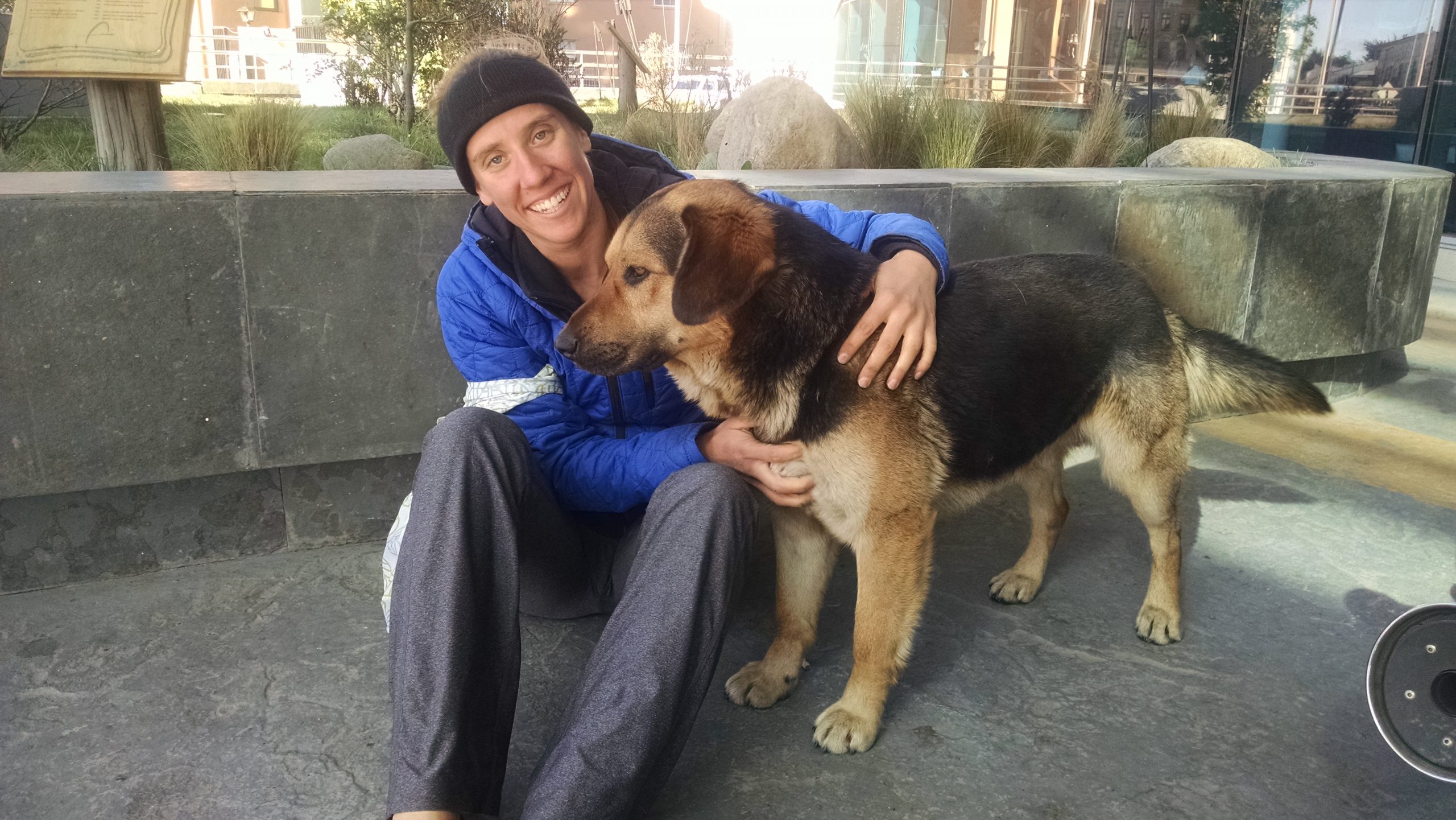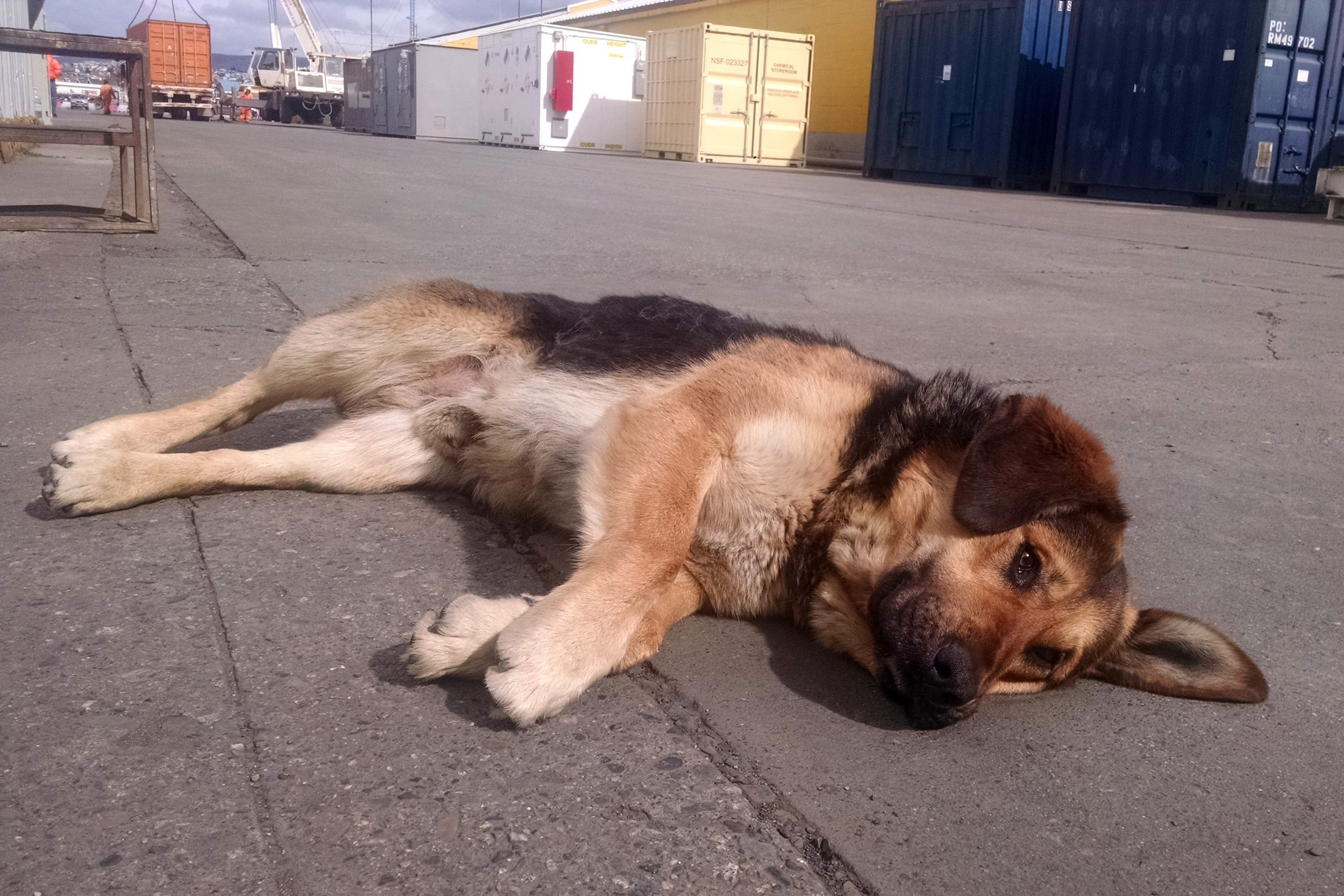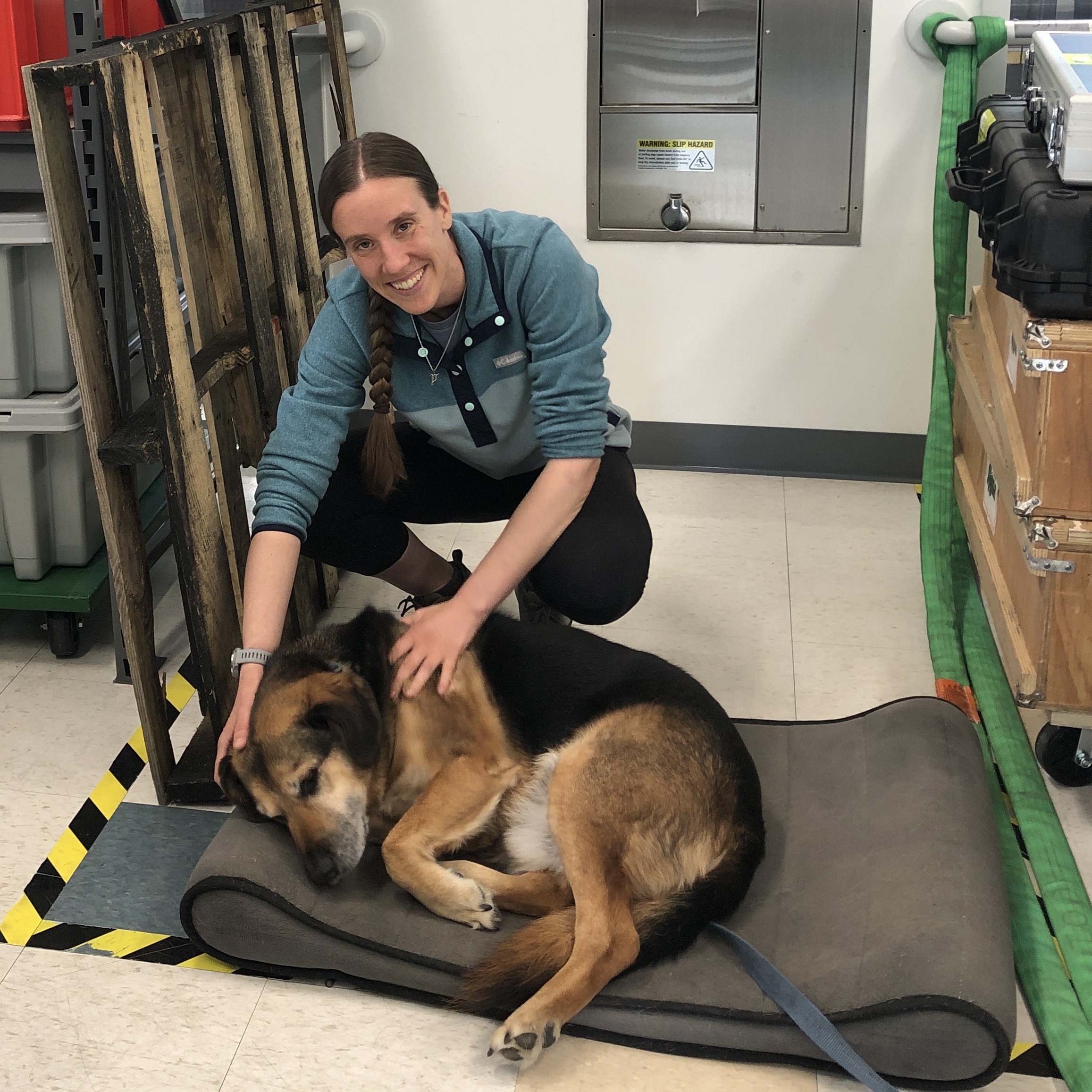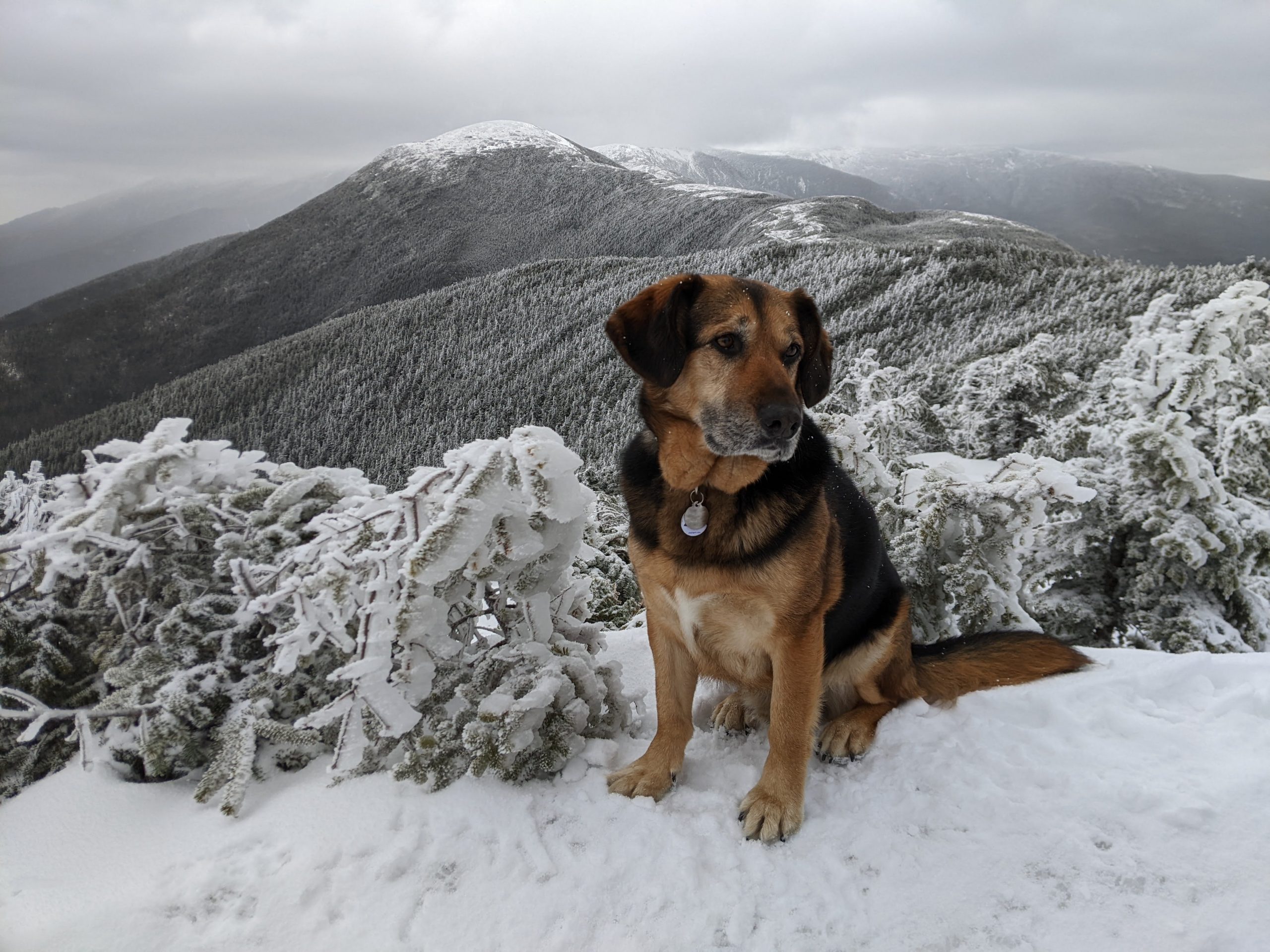A Relationship Borne of OOI
OOI Engineer Jennifer Batryn had traveled to Punta Arenas, Chile in October 2016, to help mobilize for the third deployment and recovery cruise of the Global Argentine Basin Array. Punta Arenas is home to numerous street dogs, including a pack that slept in front of the hotel where the National Science Foundation Ocean Observatories Initiative (OOI) team was staying. On the way to begin work the first morning, Batryn stopped to pet several of the dogs and happily encouraged one to follow her to the warehouse facility where the team was working. He snuck through the port security entrance and joined Batryn and the team at the warehouse for the morning. When Batryn went into town for lunch, he followed and waited patiently outside of the restaurant. He then followed Batryn back to the warehouse for the afternoon and to the hotel at the end of the day. This pattern continued for the next week and a half while the team built and prepared the moorings.
When it came time to start loading the R/V Nathaniel B Palmer, Batryn realized that this dog had weaseled its way into her heart and decided she wasn’t leaving Chile without him. (Editor’s note: After looking into Teddy’s eyes, it is easy to understand how this happened!). “Teddy had the sweetest and most laid-back personality. He loved getting belly rubs and pats but also was content napping on a piece of foam in the warehouse, completely unfazed by the forklift trucks and other commotion going on. He was also amazingly dirty from living on the streets and my hands would instantly get a black film on them after petting him, but there was no way I could say no to him, “said Batryn. She chose the name Teddy since he was like a big teddy bear and started looking into the many logistics necessary to bring him back home with her.
Batryn only had several days to figure everything out before boarding the ship for three weeks. Since there were no pet stores nearby, she walked to a large grocery store and purchased a collar, leash, and a large bag of dog food. She then found a local vet clinic through a web search and got the name and phone number of a local dogsitter from the port agent. With that information in hand, Batryn enlisted the help of a friendly hotel employee to make the necessary phone calls to schedule an appointment since her Spanish was limited. She lucked out and was able to arrange a vet appointment the next day and scheduled a taxi to pick her and Teddy up from the port and take them across town.
The next day was Teddy’s first day wearing a collar and leash. It took some getting used to as he watched the other street dogs running down the busy street chasing cars without being able to join in. It would be a day of many more firsts. When it came time for the taxi to pick Batryn and Teddy up from the port entrance, Teddy, who was used to chasing cars and not riding in one, wanted no part of getting inside the vehicle. The port security guard saw the struggle and kindly offered to help lift the nearly 60 lb. dog into the back of the taxi. During the stressful ride across town, Batryn tried to comfort Teddy. When they arrived at the vet office, the front desk assistant saw Batryn’s dirty hands and exclaimed, “Ahh, mecánica!” assuming the black film on her hands was due to work as a mechanic, and not the result of petting a dirty street dog.
Batryn had previously read that Chile is free of dog rabies and that rabies vaccines were not required from that origin, but she decided to play it safe to help ensure smooth entry into the United States. She had Teddy receive all the basic shots necessary for travel, as well as a rabies shot and a certificate from the vet that Teddy was cleared for travel. Since it would be mid-November by the time they flew back to New England together, Batryn also got a signed notice that Teddy was acclimated to cold temperatures, having lived outside on the streets of Punta Arenas. This would increase the chances that the airlines would allow Teddy to travel if air temperatures happened to dip on their planned travel day. Teddy then had to endure a second cab ride to the dog sitters where he would live for the next several weeks while Batryn was at sea.
The logistics of bringing Teddy back home continued for Batryn during her three weeks at sea. In her down time between mooring operations, she used the limited ship Wi-Fi to call family and friends back home. She coordinated with her mother in California to purchase a dog kennel suitable for airline travel and asked a friend who was flying down to join her for hiking afterwards to take the giant kennel as a second piece of checked luggage. Batryn also enlisted the help of an Argentinian guest student onboard the Palmer to help call the dog sitter back in Punta Arenas to have her measure Teddy for properly sizing a kennel. The sitter also offered to give Teddy a much-needed bath before his travel to the US. The sitter later described this process to Batryn in a mix of Spanish and English as the dirtiest bath he’s ever given, with the water coming off Teddy looking “like coffee”.
Air travel is not permitted for the first four weeks after receiving a rabies vaccine, but Batryn’s time at sea combined with her week of hiking with her friend turned out to be perfect for the human-canine match. After a successful cruise and hike, Batryn reunited with her dog, but there was a small hitch. The dog kennel that her friend brought down was borderline too small for Teddy and had the potential to be rejected based on the airline guidelines. Not to be deterred, Batryn called upon the good graces of her dog sitter who traded the new kennel for an older, larger one that would allow Teddy to be more comfortable during his nearly 24-hour journey to Boston.
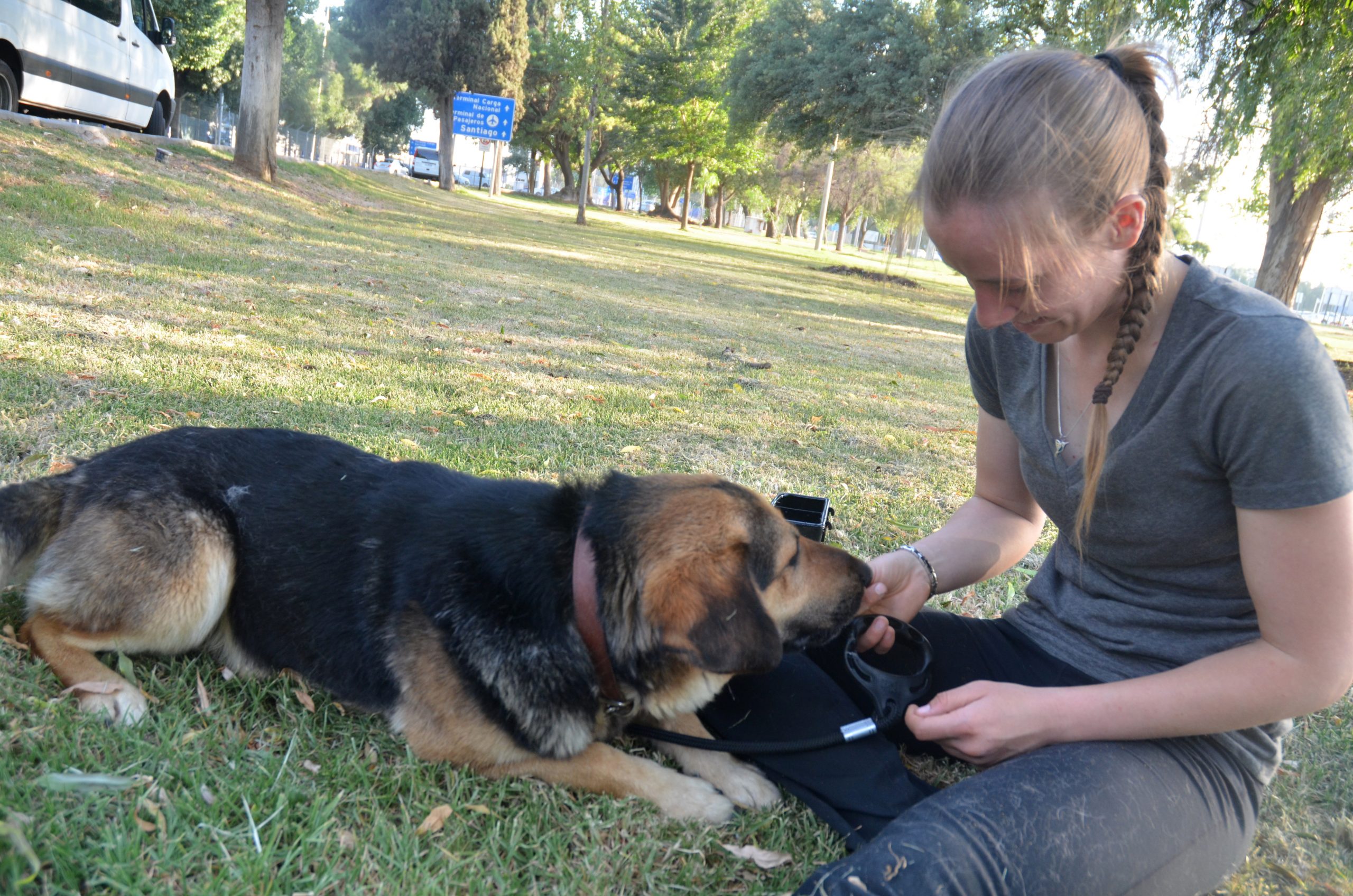
The big travel day went relatively smoothly. Due to the size of the new, larger kennel, Teddy had to fly with cargo on the first leg of the journey from Punta Arenas up to Santiago. That meant that Batryn had to exit the airport in Santiago to claim Teddy from a separate cargo area. Fortunately, a friendly cab driver outside the airport offered to walk with Batryn down the street to the cargo section. The next leg of the journey took Batryn and Teddy from Santiago, Chile, up to Miami, Florida. When claiming luggage to clear US customs, the large kennel again proved difficult as it was too large to fit on a standard luggage cart. Fortunately, a helpful airport employee helped load Teddy in his crate onto a larger airport cart and escorted them through customs. Much to Batryn’s surprise, they breezed through customs, despite bringing in a live animal from another country. The new team caught their final flight up to Boston and soon enough Batryn and Teddy were in Massachusetts on their way home to Cape Cod.
Once home, Teddy quickly settled into the idea of a more pampered life with comfortable beds, couches, regular meals, walks to the beach, and lots of attention. While he had to work through some initial separation anxiety, Teddy started coming into the LOSOS facility at Woods Hole Oceanographic Institution after just a couple days of being in the US. Ever since, Teddy has become a gentle fixture at LOSOS, getting pets from everyone who passes by, and spreading Chilean hospitality and good cheer every day.

